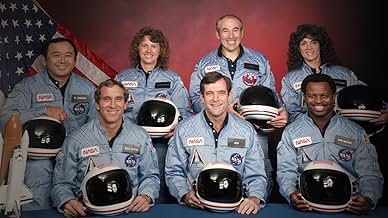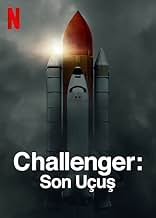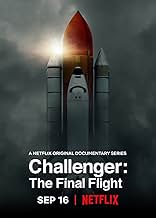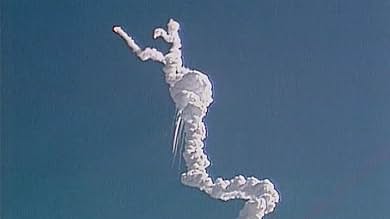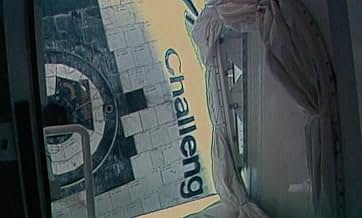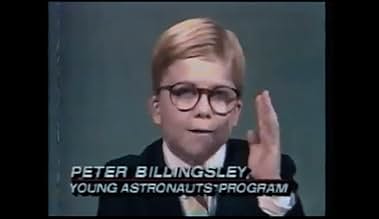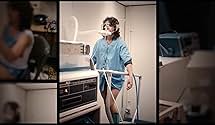IMDb RATING
7.8/10
8.4K
YOUR RATING
Four-part docuseries on the 1986 Challenger space shuttle disaster, unpacking an indelible moment for a generation of Americans.Four-part docuseries on the 1986 Challenger space shuttle disaster, unpacking an indelible moment for a generation of Americans.Four-part docuseries on the 1986 Challenger space shuttle disaster, unpacking an indelible moment for a generation of Americans.
- Awards
- 2 nominations total
Browse episodes
Featured reviews
I found it interesting that the name "Roger Boisjoly" wasn't mentioned once. The man who probably fought harder than anyone to fix the o-ring problem gets passed by?
While the series held my interest for all four episodes, a little more tech and a little less teacher would have been better, for me at least.
Much like President Kennedy's assassination on 11/22/63 or the terrorist events of 9/11/01, the moment that the space shuttle Challenger exploded just minutes after take-off in 1986 is one of those "where were you when..." moments. This documentary looks back at the tragedy and its context in American culture at the time.
The first two episodes are more history lessons than anything else, setting the groundwork for why the space shuttle program--and Challenger specifically--was a topic of conversation throughout the 1980s. It also examines all the crew members of that fateful voyage, including of course the much-publicized schoolteacher Christa McAuliffe. Your enjoyment mileage may vary for these episodes, as besides interviews with surviving family members they don't bring much more to the table other than context.
The final two episodes, however, really dig into the exact reason behind the malfunction (faulty o-rings) and clearly re-trace a faulty decision-making process from NASA that placed slavish devotion to schedule (and some hubris mixed in) over protecting human life. These episodes are riveting, especially when key NASA players are interviewed for their thoughts after the passage of time. You might be surprised at the recalcitrance of some of them.
Overall, this is a solid and balanced (both context and deep-dive) look at an incredibly sad event. It will bring tears to your eyes on multiple occasions. The access to family members of the astronauts, former high-level NASA officials, and even certain celebrities of the time are the hallmark here, along with a solemn lesson to be learned about the value of safety versus hubris.
The first two episodes are more history lessons than anything else, setting the groundwork for why the space shuttle program--and Challenger specifically--was a topic of conversation throughout the 1980s. It also examines all the crew members of that fateful voyage, including of course the much-publicized schoolteacher Christa McAuliffe. Your enjoyment mileage may vary for these episodes, as besides interviews with surviving family members they don't bring much more to the table other than context.
The final two episodes, however, really dig into the exact reason behind the malfunction (faulty o-rings) and clearly re-trace a faulty decision-making process from NASA that placed slavish devotion to schedule (and some hubris mixed in) over protecting human life. These episodes are riveting, especially when key NASA players are interviewed for their thoughts after the passage of time. You might be surprised at the recalcitrance of some of them.
Overall, this is a solid and balanced (both context and deep-dive) look at an incredibly sad event. It will bring tears to your eyes on multiple occasions. The access to family members of the astronauts, former high-level NASA officials, and even certain celebrities of the time are the hallmark here, along with a solemn lesson to be learned about the value of safety versus hubris.
I have spent much of my adult life avoiding thinking about this tragedy. It is a case study on how an organization can become wicked and its members essentially the epitome of evil.
For me it was just horribly sad to watch this and there is a prevalent sense of horror as events move toward the inevitable ending.
What made it worth watching for me was to learn about Feynman's role. I knew the outline of it but not the specifics. It's quite amazing.
What astonishes me is there are these awful, old, gross NASA administrators who are still totally unrepentant, although they are clearly and obviously to blame for what happened.
For me it was just horribly sad to watch this and there is a prevalent sense of horror as events move toward the inevitable ending.
What made it worth watching for me was to learn about Feynman's role. I knew the outline of it but not the specifics. It's quite amazing.
What astonishes me is there are these awful, old, gross NASA administrators who are still totally unrepentant, although they are clearly and obviously to blame for what happened.
Gripping, informative, and historically significant
Many born in the 90's have no recollection of a time when space exploration failed. This documentary looks at the successes of NASA in terms of inclusion during the 1970's and 80's. Then looked at how NASA got greedy and tried to do too many things at once, 7 great people were sacrificed in this greediness in January of 1986.
Did you know
- TriviaWhile the Challenger crew were the first to die during a mission, they were not the first NASA crew to be killed. The three-man crew of Apollo 204 (aka, Apollo 1), Gus Grissom, Roger B. Chaffee and Edward H. White II were killed in a fire in their capsule during a launch practice run on the launch pad on January 27, 1967. The docuseries makes no mention of this earlier fatality (what the NASA engineer said was that no NASA astronaut had been "killed on their way to space" to fit the narrative of the Challenger deaths, so it was a matter of semantics).
- How many seasons does Challenger: The Final Flight have?Powered by Alexa
Details
- Runtime
- 45m
- Color
- Sound mix
Contribute to this page
Suggest an edit or add missing content



